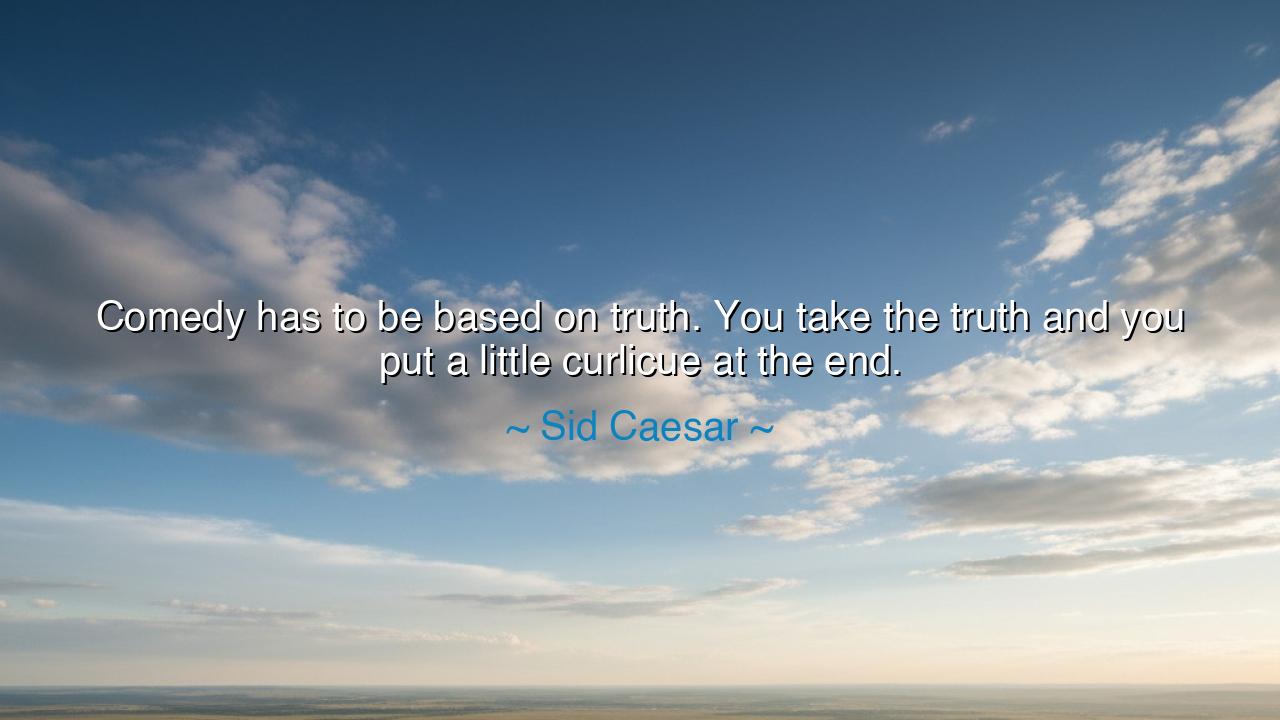
Comedy has to be based on truth. You take the truth and you put a
Comedy has to be based on truth. You take the truth and you put a little curlicue at the end.






The great master of laughter, Sid Caesar, once said: “Comedy has to be based on truth. You take the truth and you put a little curlicue at the end.” In these words lies the sacred formula of all genuine humor — that truth is the seed from which laughter grows. Without truth, comedy becomes hollow; without the “curlicue,” truth becomes too sharp to touch. Caesar, who shaped the golden age of television comedy, understood that laughter is not born from deception, but from recognition. It is when the audience sees themselves reflected — their flaws, their struggles, their absurdities — that they laugh, not out of mockery, but out of relief.
For Sid Caesar, who lived through war and hardship before he ever stood beneath studio lights, comedy was no mere entertainment; it was revelation. He had seen the power of truth in its rawest form — truth that could wound, truth that could heal. And he discovered that to make people laugh, one must first understand them. Comedy, he said, begins where honesty meets compassion. The “curlicue” he speaks of is not deceit, but artistry — that subtle twist of exaggeration, irony, or surprise that turns pain into laughter and reality into reflection. It is the artist’s hand guiding the truth gently toward joy.
The ancients themselves knew this law of laughter. The Greek playwright Aristophanes, who made Athens roar with satire, built every jest upon the foundations of truth. His plays mocked politicians and philosophers, yet through his humor, he revealed the folly and beauty of human nature. He did not invent lies to entertain; he magnified truth to awaken. So it has ever been: the comic is the mirror in which the soul sees its reflection and learns to smile at its imperfections. Laughter, when rooted in truth, becomes not mere noise, but wisdom disguised as mirth.
Caesar’s words remind us that great comedy is not about cruelty but clarity. A joke that hurts without revealing truth is empty; a joke that enlightens without malice is eternal. Think of Charlie Chaplin, who, in “The Great Dictator,” turned the horrors of tyranny into satire. His humor was the “curlicue” on a terrifying truth — that power without compassion dehumanizes all. And yet, through laughter,






AAdministratorAdministrator
Welcome, honored guests. Please leave a comment, we will respond soon